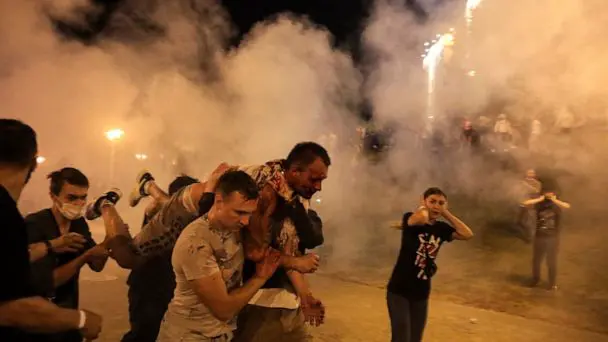They left their homes in the Middle East to flee war and became refugees. Even if some of them are lucky enough to reach foreign land, they remain isolated due to language and cultural problems.
On the occasion of the 17th World Refugee Day, which falls on June 20, Xinhua correspondents visited the homeless as well as refugees in countries like Syria, Iraq, Turkey, France and Belgium, and witnessed their painful struggles for food, clean water, heath care, or simply survival.
Flee and suffer
Khadijeh Jdaiani, 40, is the female head of a five-member family that originally lived in the Eastern Couta region, east of Damascus, Syria. They fled there in 2011 when the government forces and rebels began to fight with each other.
Now they live inside a room with a floor area of less than 20 square meters in the eastern outskirts of Damascus, without any descent furniture and an old leather suitcase containing all of the family belongings.
"It was not easy to escape then under heavy gunfire," Jdaiani told Xinhua, sitting on a cotton mattress, a bed used for sleep by the entire family.
The six-year conflict in Syria has produced more than 6.3 million migrants like Jdaiani, and over 5 million of them fled to neighboring countries and became refugees.
According to the United Nations statistics, refugees from Syria have formed the largest refugee community in the world.
For those Syrians who fled to other countries, their suffering is also far from over.
"We succeeded in our second attempt," said Mahmoud Qeshreh, 27, a Syrian refugee who currently lives in the Belgian town of Lieg, when he recalled his two attempts to enter Europe by boat via the Aegean Sea.
"In the first attempt on the sea, the boat was overturned by the waves. I felt I would die at the time when the boat capsized," said the young man who came from a middle-class family in Aleppo city in northern Syrian.
At first, Qeshreh fled to Turkey, but he ran into walls everywhere in the country due to his refugee status. Therefore, he decided to turn to Greece, before reaching Macedonia, Serbia, and finally Belgium in August 2015.
The route via the Aedean Sea to Europe is the most feasible one for refugees. But the route is wrought with danger. According to Turkey's Goast Guard, in the first three months of this year, 173 illegal immigrants drowned in the Sea, while about 5,000 refugees died during their illegal migration journey towards Europe last year.
Even so, some 53,000 people took this route to reach Europe. What awaits is far from an easy life.
Some refugees in Paris told Xinhua that they cannot speak French and English, only Arabic, and they live on begging. French refugee protection agencies say the language barrier makes life hard for many refugees.
Conflict at the root
According to the latest report released by the Organization for Economic Cooperation and Development (OECD), over 50 percent of refugees worldwide come from Syria, Afghanistan and Somalia.
The report said that armed conflicts and threat of violence were important factors that caused a massive exodus of refugees.
In countries like Iraq, Syria, Afghanistan and Libya, interventions by the United States and other Western countries led to political chaos and forced residents there to flee.
Patrick Cockburn, a senior writer of British newspaper The Independent, believed domestic factors plus regional and global confrontations generated such compound explosives as the Syria crisis and the refugee crisis which were hard to tame.
Western countries' invention and the rise of the Islamic State destroyed these countries which had already been torn by war, he noted.
Zeyad Juburi, professor of economics at Baghdad University, said that U.S. invasion in 2003 overthrew the Saddam Hussein regime, but also thoroughly destroyed Iraq's social system, throwing the whole country into turmoil and conflict and creating conditions for the spread of terrorism.
For whom the bell tolls
The bell of refugee crisis tolls not only for refugees. As British poet John Donne wrote centuries ago: "No man is an island"; the current suffering of refugees mirrors the suffering of humanity.
Saving refugees from the crisis should be the common responsibility of the international community.
Officials at UN High Commissioner for Refugees (UNHCR)'s office in Jordan said that refugees need large quantities of food, clean drinking water, healthcare services, etc., and lack of funds currently is the top problem.
Lasting crises and conflicts have also brought new burdens to humanitarian aid organizations, they said, calling on the international community to provide material and spiritual support to help improve the living environment for refugees.
David Khoudour, an OECD expert on refugees, told Xinhua that most refugee receiving countries lack long-term programs in providing humanitarian aid.
Inside refugee camps in Jordan and Turkey, Syrian children cannot go to school and would become "a generation of sacrifice", which will bring about long-term problems, Khoudour said.
"Because we don't know when these refugees could return to Syria. It's possible that they can never go back, and they must integrate themselves into the host societies," Khoudour added.
(ASIA PACIFIC DAILY)
 简体中文
简体中文

